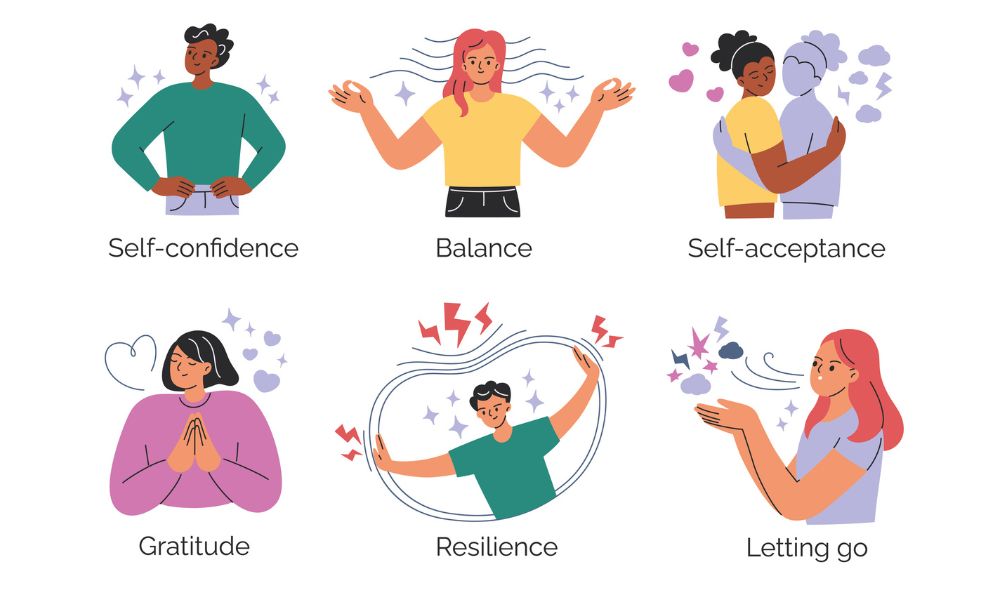Anger is often seen as a negative emotion, but when managed well, it can serve as a powerful tool for change and personal growth. Many people experience anger when they feel that their rights are being violated or when they face unjust situations. By recognising and understanding this emotion, we can use it to motivate ourselves and others toward positive actions.

When we approach our anger with awareness, we can transform it into something constructive. Effective anger management can lead to better communication and stronger relationships. With the right strategies, anger can become a vehicle for expressing our needs and advocating for ourselves and others.
Exploring the positive aspects of anger helps us see it in a new light. Rather than viewing it as merely a negative force, we can appreciate its potential to inspire change and resilience in our lives.
Key Takeaways
- Anger can be a motivator for positive change when understood properly.
- Effective anger management leads to improved communication and stronger relationships.
- Recognising anger's positive aspects helps us use it as a tool for personal growth.
Understanding Anger as an Emotion

Anger is a complex emotion that serves important purposes in our lives. By examining both its psychological and physiological aspects, we can gain insights into how to manage it effectively.
The Psychology of Anger
Anger often arises in response to perceived threats or injustices. This emotion acts as a signal that something is wrong and requires our attention. It can motivate action, helping us to set boundaries or confront problems.
When we feel angry, our thoughts can become clouded. We may focus on negative interpretations of situations. Recognising these patterns is essential for management. Some techniques include cognitive behavioural strategies, which help us reframe our thoughts and respond more constructively.
Understanding the triggers behind our anger is also crucial. We can keep a journal to track specific events that provoke these feelings. This awareness allows us to address underlying issues and reduce the intensity of our anger in future situations.
The Physiology of Anger
When we experience anger, our bodies go through significant physiological changes. The amygdala, a part of the brain, initiates the fight or flight response. This leads to the release of hormones like adrenaline.
As a result, our heart rate and blood pressure increase. We may also notice changes in our breathing patterns, which prepares us for immediate action. Understanding these responses is key to managing anger effectively.
Calm down strategies can include deep breathing or physical activities. These practices help mitigate the physiological effects, allowing us to regain control. By recognising and addressing our body's reactions, we can respond to anger in a healthier way.
The Positive Aspects of Anger

Anger often gets a bad reputation, but it can serve useful purposes when managed effectively. Understanding its positive roles can help us harness this emotion for personal growth and better relationships.
Catalyst for Change
Anger can motivate us to act when we feel wronged or unfairly treated. This surge of emotion often pushes us to confront issues we might otherwise ignore.
When we feel angry about a situation, it signals that something needs to change. This feeling can help highlight injustices, whether in our personal lives or in society. By acknowledging our anger, we can channel it into productive problem-solving.
For example, if we are frustrated with a policy at work, that anger might drive us to propose a better solution. Anger can be a powerful tool that inspires us to push for what we believe is right.
Asserting Boundaries
Anger also plays a crucial role in setting and maintaining boundaries. When someone crosses our limits, feeling angry is natural. This emotion alerts us that our personal space or values are under threat.
By recognising this anger, we can express our needs clearly to others. We might say, “I feel uncomfortable when you interrupt me during meetings.” This way, we assert ourselves without resorting to aggression.
When we manage our anger positively, we not only protect our boundaries, but we also teach others how to treat us. This establishes respect in our relationships and reinforces our self-worth.
Managing Anger Effectively

To manage anger effectively, we must first understand what triggers our feelings and then find appropriate ways to express them. Acknowledging these aspects allows us to handle our emotions in a constructive manner.
Identifying Triggers
Understanding what causes our anger is the first step in managing it. We can start by keeping a journal where we note down incidents that make us angry. This helps us to identify patterns in our responses.
Common triggers may include:
- Feeling ignored or unappreciated
- Stressful situations at work
- Conflicts with friends or family
By recognising these triggers, we gain insight into our anger. This awareness can allow us to prepare for situations that might provoke us. When we know what to expect, we can respond more calmly and effectively.
Healthy Expression Techniques
Once we know our triggers, we can use healthy ways to express our anger. Instead of lashing out or bottling it up, we can try these techniques:
- Deep Breathing: Taking slow breaths can help to calm our nerves.
- Physical Activity: Engaging in exercise can release built-up tension and improve our mood.
- Communication: Expressing feelings in a clear and respectful way can reduce misunderstandings.
- Time-Outs: Taking a break from a heated situation allows us to cool down before responding.
Using these methods not only helps us express our anger in a positive way but also improves our relationships with others. Adopting a proactive approach can lead to better emotional health and more stable interactions.
Anger and Communication
When we effectively manage anger, it can enhance our communication skills. Understanding how anger influences our interactions helps us improve relationships and navigate conflicts more successfully.
Improving Interpersonal Relationships
Anger can serve as a signal that something is wrong in our relationships. When we communicate our feelings honestly, it opens the door to constructive dialogue. We should express our anger without resorting to blame.
Key points to consider:
- Use "I" statements to share feelings. For example, say "I feel upset when..." instead of "You make me angry when..."
- Practice active listening. This means giving our full attention and acknowledging the other person’s feelings.
By using these techniques, we can strengthen our connections and foster understanding.
Conflict Resolution Skills
Managing anger helps us develop vital conflict resolution skills. Recognising our emotions allows us to address issues rather than ignore them.
Effective strategies include:
- Taking deep breaths to pause before reacting.
- Clearly outlining the problem and focusing on solutions.
Through problem-solving approaches, we can turn a potentially explosive situation into a productive discussion.
Staying calm and composed helps us express anger appropriately, opening the way for resolution rather than escalation.
Strategies for Anger Management
Managing anger effectively can lead to positive outcomes in our lives. By incorporating specific techniques, we can learn to control our responses and express our feelings in a healthier way. Here are some practical strategies.
Relaxation Techniques
Relaxation is key when we feel anger rising. Techniques such as deep breathing and progressive muscle relaxation can help calm our mind and body.
Deep Breathing: We can take a few moments to breathe deeply. Inhale slowly through the nose for a count of four, hold for a count of four, and then exhale through the mouth for a count of four. Repeat this several times.
Progressive Muscle Relaxation: This technique involves tensing each muscle group for a few seconds and then relaxing them. Start from our toes and work our way up to our head. This practice can release physical tension caused by anger.
Incorporating these relaxation techniques can significantly reduce feelings of anger in the moment.
Cognitive Behavioural Approaches
Cognitive behavioural approaches help us change the way we think about anger. By recognising negative thought patterns, we can shift our perspective.
Identifying Triggers: First, we should identify specific triggers that lead to anger. Keeping a journal can help. We can note down when we feel angry and what caused it.
Reframing Thoughts: After recognising our triggers, we can work on reframing our thoughts. Instead of thinking, "This isn't fair," we might say, "I can find a solution." This positive shift helps us respond rather than react.
These cognitive strategies can empower us to manage our anger more effectively.
Anger in Different Contexts
Anger can manifest in various situations, and how we manage it significantly impacts our experiences. Understanding these contexts helps us harness anger positively, using it to drive change and improve relationships.
At Work
In the workplace, anger often arises from frustration with colleagues or unmet expectations. This emotion can serve as a signal that something needs to change. When we feel angry, we should assess the cause. Is it due to unclear communication or a heavy workload?
Addressing these underlying issues can lead to constructive conversations. For instance, expressing our feelings in a calm manner may open up dialogue that fosters teamwork. We can also use anger as motivation to set boundaries or push for necessary changes in our roles. Remember, well-managed anger promotes problem-solving rather than conflict.
In Personal Relationships
Anger in personal relationships can stem from misunderstandings or unmet needs. It is crucial to recognise that anger is a normal human emotion. When we navigate these feelings wisely, it can strengthen our connections.
We should focus on communicating our needs clearly. For example, rather than shouting during a disagreement, we can use “I” statements to express how we feel. Listening actively to the other person is also important. By doing so, we create space for resolution and understanding.
Anger can also motivate us to protect our boundaries or advocate for ourselves. When managed well, it can ultimately lead to healthier, more fulfilling relationships.
During Stressful Times
During stressful situations, anger can serve as a coping mechanism. We may find ourselves feeling irritable when overwhelmed by external pressures. This reaction can drive us to confront what’s bothering us.
We can channel that anger into action. For instance, if work deadlines are causing stress, we can express our feelings to a supervisor. This could lead to adjustments that alleviate our burden.
Practising mindfulness can help us manage anger during these times. Taking a moment to breathe and reflect allows us to respond thoughtfully instead of reacting impulsively. Acknowledging our feelings is the first step towards constructive outcomes.
Long-Term Benefits of Well-Managed Anger
Managing anger effectively can lead to several long-term benefits in our lives.
-
Enhanced Problem-Solving Skills
When we channel our anger constructively, it can motivate us to address issues directly. This proactive approach helps in finding solutions rather than dwelling on frustrations. -
Improved Relationships
Well-managed anger allows us to communicate our feelings without aggression. This can strengthen our connections with others, leading to healthier interactions. -
Increased Self-Control
By learning to manage our anger, we develop greater self-discipline. This skill not only helps with emotional responses but can also extend to other areas of our lives. -
Boosted Motivation and Drive
Anger can serve as a powerful motivator. If we harness it properly, it can propel us towards achieving our goals and making positive changes in our lives. -
Greater Emotional Awareness
Managing our anger enhances our understanding of our emotions. We become more aware of triggers and can respond to them in a healthier way.
In summary, well-managed anger leads to personal growth, improved communication, and stronger problem-solving abilities. By recognising and regulating our emotions, we can turn anger into a positive force for change in our lives.
When to Seek Professional Help
Recognising when our anger becomes unmanageable is crucial. It is important to seek help if our feelings of anger lead to harmful behaviour or affect our daily lives. Professional support can help us learn to manage anger more effectively and reduce its impact on our wellbeing.
Signs of Uncontrollable Anger
We should pay attention to specific signs that signal our anger might be out of control. These can include:
- Frequent angry outbursts that seem disproportionate to the situation
- Constant feelings of irritability or frustration
- Using physical violence or verbal abuse as an outlet
- Difficulty in calming down after becoming angry
- Avoiding situations or people due to fear of losing control
If we notice these signs, it may indicate a need for professional support. Uncontrolled anger can harm our relationships, job performance, and overall mental health.
Options for Professional Support
There are several avenues we can explore for professional help with managing anger. These include:
- Counselling or Therapy: Working with a trained therapist can help us uncover the root causes of our anger and develop coping strategies.
- Anger Management Classes: These classes offer practical skills for controlling anger and improving communication.
- Support Groups: Joining a group can provide us with shared experiences and techniques from others who face similar challenges.
We don’t have to face this alone. Seeking support empowers us to manage our anger effectively and improve our quality of life.
Frequently Asked Questions
We have many questions about how to manage anger constructively. Understanding the positive aspects of anger can help us channel our feelings in healthier ways. Let’s explore some common queries related to this important emotion.
How can expressing anger lead to positive outcomes when done appropriately?
When we express anger appropriately, it can lead to open communication. This clarity helps resolve conflicts and misunderstandings. Sharing our feelings can also strengthen relationships as it fosters honesty and trust.
What are the potential benefits of channelling anger into constructive activities?
Channelling anger into constructive activities can help us focus our energy positively. This might include physical exercise, creative pursuits, or problem-solving. Engaging in these activities can reduce stress and improve our mood.
In what ways can anger contribute to improved performance in tasks or challenges?
Anger can boost our motivation and focus when facing tasks. The intensity of our feelings can drive us to achieve goals or meet challenges head-on. When harnessed well, it can enhance our performance and determination.
What are the implications of suppressing anger, and how can it affect wellbeing?
Suppressing anger can lead to negative feelings like frustration and resentment. This bottled-up emotion may cause physical symptoms, such as tension and fatigue. Over time, it can harm our mental health and lead to more significant issues.
How can individuals express anger in a constructive manner without resorting to harmful behaviours?
We can express anger constructively by using "I" statements to describe our feelings. This approach helps communicate our emotions without blaming others. Practising active listening also encourages healthy discussions about our feelings.
Why is it crucial to manage anger constructively, and what strategies facilitate this?
Managing anger constructively is essential for maintaining relationships and our well-being. Techniques such as deep breathing, mindfulness, or taking a break can help us gather our thoughts. These strategies allow us to respond thoughtfully rather than react impulsively.





















